Prepare for the Psychiatric and Mental Health Nursing Exam with this 2025 Exam 1 edition, featuring in-depth practice questions, a comprehensive study guide, and detailed rationales. Tailored for nursing students and professionals, this resource aligns with 2025 standards, covering essential topics like therapeutic communication, mental health disorders, psychopharmacology, and crisis intervention. Each practice question is designed to reflect the complexity of the real exam, with accompanying rationales providing clear explanations to deepen your understanding and enhance critical thinking skills. This study guide is your ultimate tool to excel in the Psychiatric and Mental Health Nursing Exam in 2025.
Preview
An adolescent was recently diagnosed with oppositional defiant disorder. The parents say
to the nurse, “Isn’t there some medication that will help with this problem?” Select the
nurse’s best response.
a. “There are no medications to treat this problem. This diagnosis is behavioral in nature.”
b. “It’s a common misconception that there is a medication available to treat every health
problem.”
c. “Medication is usually not prescribed for this problem. Let’s discuss some behavioral
strategies you can use.”
d. “There are many medications that will help your child manage aggression and
destructiveness. The health care provider will discuss them with you.” – – correct ans- -C
The parents are seeking a quick solution. Medications are generally not indicated for
oppositional defiant disorder. Comorbid conditions that increase defiant symptoms, such
as attention deficit hyperactivity disorder, should be managed with medication, but no
comorbid problem is identified in the question. The nurse should give information on
helpful strategies to manage the adolescent’s behavior.
An adolescent diagnosed with a conduct disorder stole and wrecked a neighbor’s
motorcycle. Afterward, the adolescent was confronted about the behavior but expressed
no remorse. Which variation in the central nervous system best explains the adolescent’s
reaction?
a. Serotonin dysregulation and increased testosterone activity impair one’s capacity for
remorse.
b. Increased neuron destruction in the hippocampus results in decreased abilities to
conform to social rules.
c. Reduced gray matter in the cortex and dysfunction of the amygdala results in decreased
feelings of empathy.
d. Disturbances in the occipital lobe reduce sensations that help an individual clearly
visualize the consequences of behavior. – – correct ans- -C
Adolescents with conduct disorder have been found to have significantly reduced gray
matter bilaterally in the anterior insulate cortex and the amygdala. This reduction may be
related to aggressive behavior and deficits of empathy. The less gray matter in these regions
of the brain, the less likely adolescents are to feel remorse for their actions or victims.
People with intermittent explosive disorder may have differences in serotonin regulation in
the brain and higher levels of testosterone. Neuron destruction in the hippocampus is
associated with memory deficits. The occipital lobe is involved with visual stimuli but not
the processing of emotions.
Which assessment findings support a diagnosis of oppositional defiant disorder?
a. Negative, hostile, and spiteful toward parents. Blames others for misbehavior.
b. Exhibits involuntary facial twitching and blinking; makes barking sounds.
c. Violates others’ rights; cruelty toward people or animals; steals; truancy.
d. Displays poor academic performance and reports frequent nightmares. – – correct ans-
A
Oppositional defiant disorder is a repeated and persistent pattern of having an angry and
irritable mood in conjunction with demonstrating defiant and vindictive behavior. The
distracters identify findings associated with conduct disorder, anxiety disorder, and
Tourette’s syndrome.
to the nurse, “Isn’t there some medication that will help with this problem?” Select the
nurse’s best response.
a. “There are no medications to treat this problem. This diagnosis is behavioral in nature.”
b. “It’s a common misconception that there is a medication available to treat every health
problem.”
c. “Medication is usually not prescribed for this problem. Let’s discuss some behavioral
strategies you can use.”
d. “There are many medications that will help your child manage aggression and
destructiveness. The health care provider will discuss them with you.” – – correct ans- -C
The parents are seeking a quick solution. Medications are generally not indicated for
oppositional defiant disorder. Comorbid conditions that increase defiant symptoms, such
as attention deficit hyperactivity disorder, should be managed with medication, but no
comorbid problem is identified in the question. The nurse should give information on
helpful strategies to manage the adolescent’s behavior.
An adolescent diagnosed with a conduct disorder stole and wrecked a neighbor’s
motorcycle. Afterward, the adolescent was confronted about the behavior but expressed
no remorse. Which variation in the central nervous system best explains the adolescent’s
reaction?
a. Serotonin dysregulation and increased testosterone activity impair one’s capacity for
remorse.
b. Increased neuron destruction in the hippocampus results in decreased abilities to
conform to social rules.
c. Reduced gray matter in the cortex and dysfunction of the amygdala results in decreased
feelings of empathy.
d. Disturbances in the occipital lobe reduce sensations that help an individual clearly
visualize the consequences of behavior. – – correct ans- -C
Adolescents with conduct disorder have been found to have significantly reduced gray
matter bilaterally in the anterior insulate cortex and the amygdala. This reduction may be
related to aggressive behavior and deficits of empathy. The less gray matter in these regions
of the brain, the less likely adolescents are to feel remorse for their actions or victims.
People with intermittent explosive disorder may have differences in serotonin regulation in
the brain and higher levels of testosterone. Neuron destruction in the hippocampus is
associated with memory deficits. The occipital lobe is involved with visual stimuli but not
the processing of emotions.
Which assessment findings support a diagnosis of oppositional defiant disorder?
a. Negative, hostile, and spiteful toward parents. Blames others for misbehavior.
b. Exhibits involuntary facial twitching and blinking; makes barking sounds.
c. Violates others’ rights; cruelty toward people or animals; steals; truancy.
d. Displays poor academic performance and reports frequent nightmares. – – correct ans-
A
Oppositional defiant disorder is a repeated and persistent pattern of having an angry and
irritable mood in conjunction with demonstrating defiant and vindictive behavior. The
distracters identify findings associated with conduct disorder, anxiety disorder, and
Tourette’s syndrome.
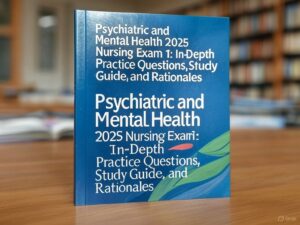
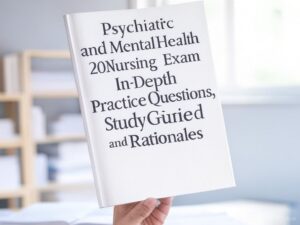


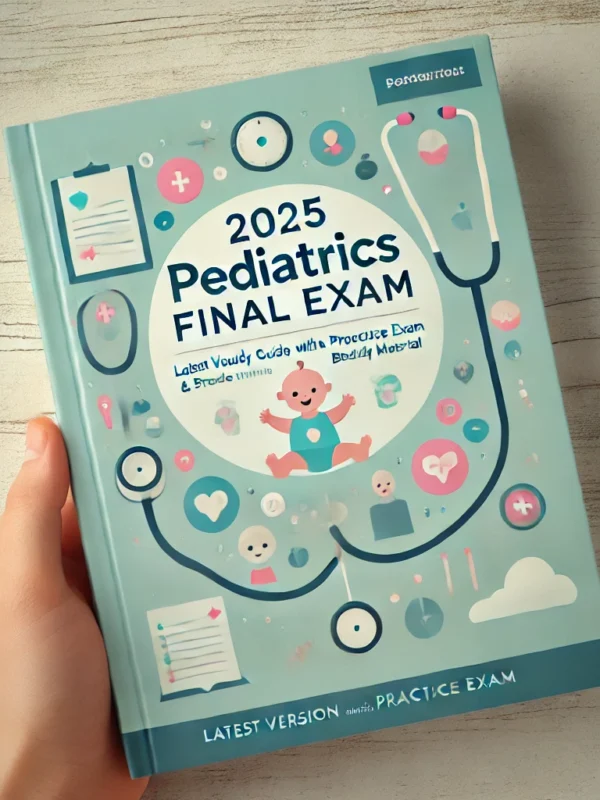
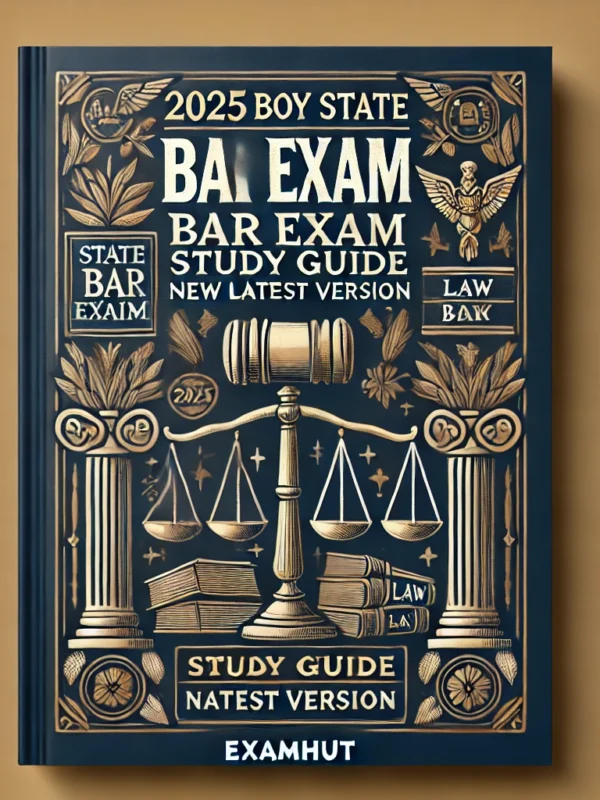
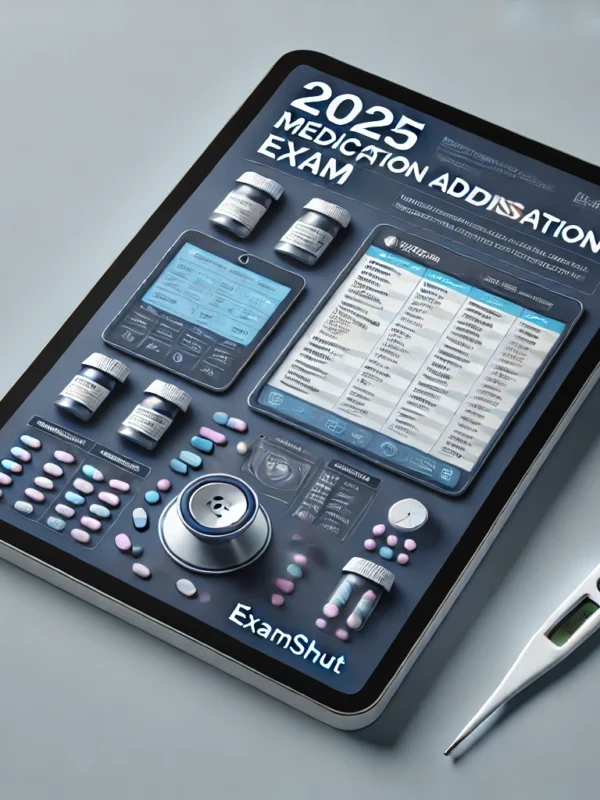
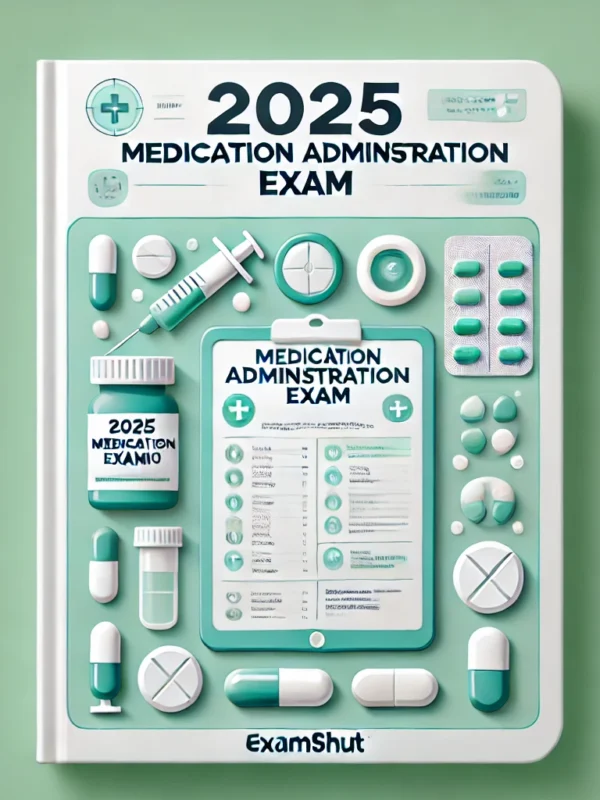
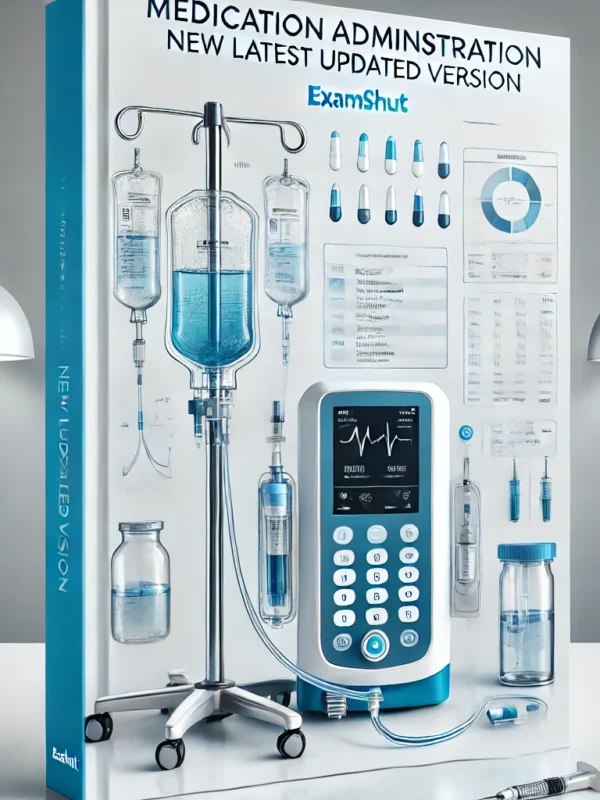
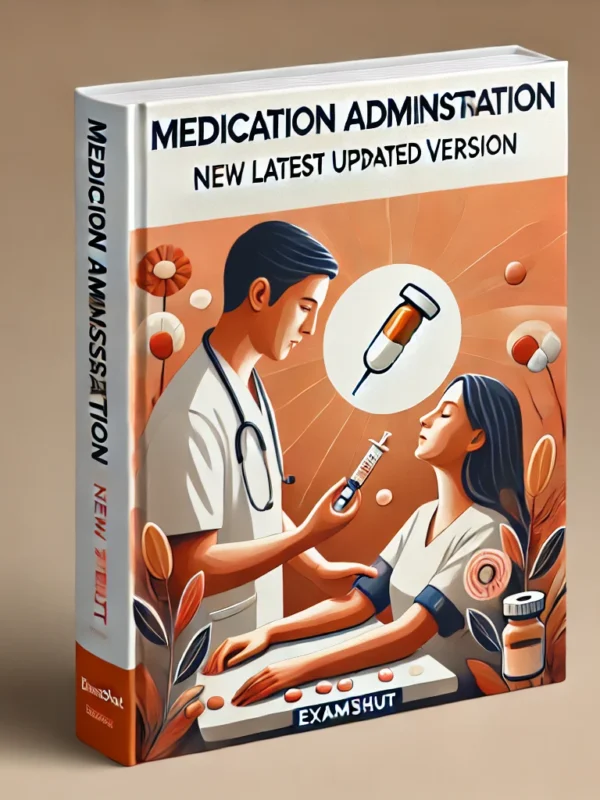
Reviews
There are no reviews yet.